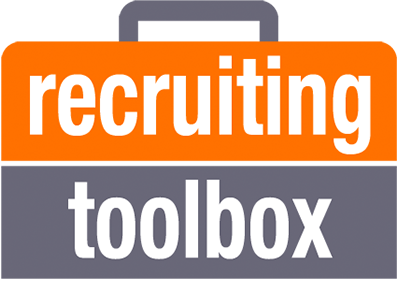Recruiting Toolbox Blog
Use the Hiring Manager Maturity Model to Build a Culture of Recruiting

[This blog post first appeared on the LinkedIn Talent Blog in June 2020]
A culture of recruiting — where all hiring managers, not just recruiters, help to attract and recruit top talent — doesn’t happen by accident. It takes strong TA leaders who establish high expectations for hiring managers, cultivate strong capabilities through hiring manager training and mentoring, and reward strong hiring managers through accountability mechanisms, like performance reviews. Too many hiring managers see recruiting as something that lives outside of their day jobs, a favor they do for the recruiter — that has to change. Why?
Top talent demands engaged hiring managers
The best talent in any job family has so many career choices, even in a down economy. And that talent doesn’t tolerate passive hiring managers who aren’t engaged in early selling, poor interviewing, slow processes, indecisiveness, job offers that aren’t tailored to their needs, and ineffective onboarding.
My team and I at Recruiting Toolbox have worked with thousands of hiring managers — as practitioners and consultants — with many of the most interesting and amazing companies around the world. And when we consult with clients on strategy, process, and org model work, or build custom training for their hiring managers, or help recruiters elevate to talent advisors, we regularly have deep discussions about what’s too often ignored: What’s the role and expectations we have for hiring managers? They’re definitely more than just lead interviewers, right?
Enter The Hiring Manager Maturity Model
We’ve studied the mindset and practices of the best hiring managers, and — no surprise — they do so much more than just passively wait for recruiting to serve them A-player talent on a silver platter. These Talent Champions employ the “always be recruiting” approach, regularly network with leads and solicit referrals, follow up on introductions, mentor their teams to be great “recruiters,” and help to build accountability throughout their org for diversity and maintaining a high hiring bar. They are DREAM hiring managers. And I bet all of us wish we had more.
On the other end of the spectrum, we have the passive-aggressive, ineffective hiring managers who don’t see recruiting as their job at all, who complain about their recruiter to their HR rep or manager, who somehow have urgent needs but never make the time to leverage their network or get that candidate scheduled onto their calendar. Ugh! These hiring managers will always struggle to get great talent, with or without great recruiting support. Unless we — as Talent Advisors — can get them to step up.
Download The Hiring Manager Maturity Model
The benefits of Talent Champions
What can you expect when you have Talent Champion hiring managers to leverage? What happens when you can leverage a culture of recruiting? Here’s what we’ve observed across 100+ companies.
- Higher response rates from top talent to outbound messaging
- Faster time to fill (more proactive and responsive recruiting)
- Skinnier recruiting funnel (fewer, better candidates)
- Better quality hires (company gets more of the talent it needs)
- Higher offer : hire close rate
- Better diversity ROI
- Industry reputation for high hiring bar
- Less culture risk (new people learn how to hire from champions)
- Better-funded talent acquisition programs (diversity, referrals, events)
How to build a culture of recruiting
In The Hiring Manager Maturity Model, we outline foundational work you can do — as a talent acquisition leader — to help create this culture of recruiting. We even include a short self assessment to guide your priorities.
One of the most important things we highlight is the need to establish “what good looks like” for hiring managers. Do you have expectations clearly set for the role of the hiring manager at your company? And if so, do you capture and share feedback with hiring managers on their performance AS HIRING MANAGERS? If you’re not surveying your recruiters for feedback on hiring managers and if you’re not evaluating hiring manager recruiting success in your performance reviews, you should start with those two things first.
Next, evaluate how you reward your hiring managers. Do your VPs recognize leaders on their team for great recruiting achievements? Note: When I was a less mature recruiting leader, I thought it was key that I be the one to recognize the great hiring managers, so I’d get myself invited to the VP’s staff meetings, and present updates on how different teams were doing relative to their recruiting plans. As I matured, I realized it was much more effective for me to shadow-write recruiting updates for the VP to share — not me — at his director and manager meetings. The more he recognized his leaders for recruiting results, the more the leaders saw recruiting as part of their day jobs, as core to their success, and as something more than just “helping out recruiting.”
Finally, make sure you have the foundations in place for a great recruiting culture — great hiring manager training that does more than just teach process, legal dos and don’ts, and the basics of behavioral interviewing. Focus on their role in D&I and sourcing (both hunting and farming), as well. And, make sure your recruiters provide real-time coaching and feedback as they partner to bring talent through the interview process.
You are the difference maker
None of this work “just happens.” It takes real leadership from strong Talent Advisor recruiters and recruiting leaders. In my 25+ years in talent acquisition, I’ve never seen an investment — a new CRM, better branding, higher pay — that impacts speed, quality, and diversity more than engaged, skilled hiring managers who make recruiting a true priority.
I’d love to hear what the talent champions you work with do differently to help you find great talent. Please hit me up on LinkedIn or Twitter.
To receive blog posts like this one straight in your inbox, subscribe to the blog newsletter.

